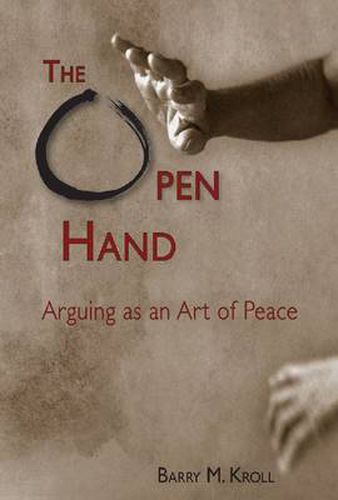Readings Newsletter
Become a Readings Member to make your shopping experience even easier.
Sign in or sign up for free!
You’re not far away from qualifying for FREE standard shipping within Australia
You’ve qualified for FREE standard shipping within Australia
The cart is loading…






Based on five years of classroom experimentation, The Open Hand presents a highly practical yet transformational philosophy of teaching argumentative writing. In his course Arguing as an Art of Peace, Barry Kroll uses the open hand to represent an alternative approach to argument, asking students to argue in a way that promotes harmony rather than divisiveness and avoiding conventional conflict-based approaches. Kroll cultivates a bodily investigation of non-combative argument, offering direct pedagogical strategies anchored in three modalities of learning – conceptual-procedural, kinesthetic, and contemplative – and projects, activities, assignments, informal responses, and final papers for students. Kinesthetic exercises derived from martial arts and contemplative meditation and mindfulness practices are key to the approach, with Kroll specifically using movement as a physical analogy for tactics of arguing. Collaboration, mediation, and empathy are important yet overlooked values in communicative exchange. This practical, engaging, and accessible guide for teachers contains clear examples and compelling discussions of pedagogical strategies that teach students not only how to write persuasively but also how to deal with personal conflict in their daily lives.
$9.00 standard shipping within Australia
FREE standard shipping within Australia for orders over $100.00
Express & International shipping calculated at checkout
Based on five years of classroom experimentation, The Open Hand presents a highly practical yet transformational philosophy of teaching argumentative writing. In his course Arguing as an Art of Peace, Barry Kroll uses the open hand to represent an alternative approach to argument, asking students to argue in a way that promotes harmony rather than divisiveness and avoiding conventional conflict-based approaches. Kroll cultivates a bodily investigation of non-combative argument, offering direct pedagogical strategies anchored in three modalities of learning – conceptual-procedural, kinesthetic, and contemplative – and projects, activities, assignments, informal responses, and final papers for students. Kinesthetic exercises derived from martial arts and contemplative meditation and mindfulness practices are key to the approach, with Kroll specifically using movement as a physical analogy for tactics of arguing. Collaboration, mediation, and empathy are important yet overlooked values in communicative exchange. This practical, engaging, and accessible guide for teachers contains clear examples and compelling discussions of pedagogical strategies that teach students not only how to write persuasively but also how to deal with personal conflict in their daily lives.